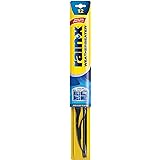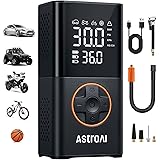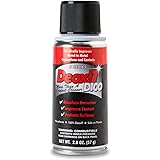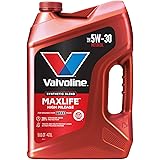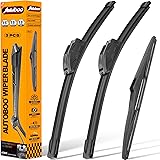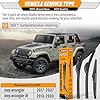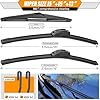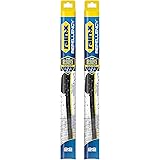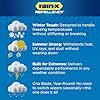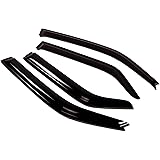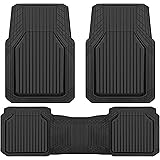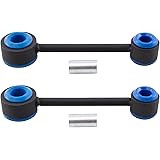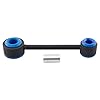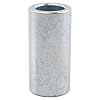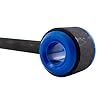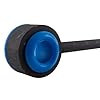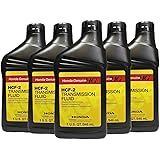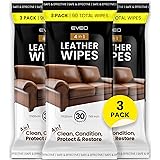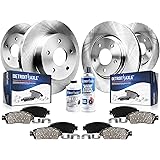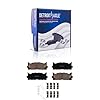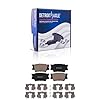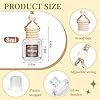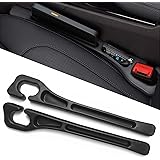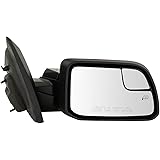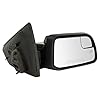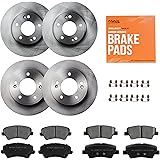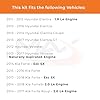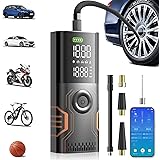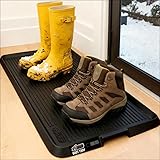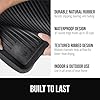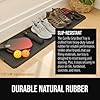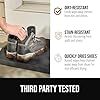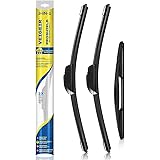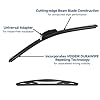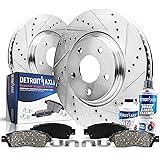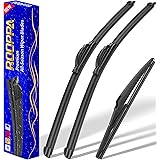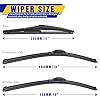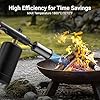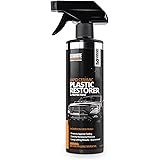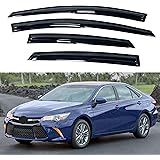Table of Contents
Discovering ants in your car can be a frustrating experience. This article will provide you with comprehensive strategies to identify the cause of the ant infestation, effectively get rid of ants, and implement preventative measures to keep them from returning. Understanding why ants are attracted to your car and how to eliminate them is crucial for maintaining a clean and pest-free vehicle.
Understanding Ant Infestations in Your Vehicle
An ant infestation inside the car is not only annoying but can also indicate underlying issues that attract these pests. It is essential to understand the factors that contribute to ants coming inside the car to effectively address the problem. By identifying the specific ant species and their attraction triggers, you can implement targeted strategies to get rid of the ants and prevent future occurrences. Effective pest control begins with understanding the nature of the ant problem.
Drift Car Air Freshener – Wood Air Freshener – Car Odor Eliminator – Teak Scent Starter Kit
$12.95 (as of March 5, 2026 09:32 GMT +00:00 – More infoProduct prices and availability are accurate as of the date/time indicated and are subject to change. Any price and availability information displayed on [relevant Amazon Site(s), as applicable] at the time of purchase will apply to the purchase of this product.)Rain-X RX30212 WeatherBeater Wiper Blades, 12″ Windshield Wipers (Pack Of 1), Automotive Replacement Windshield Wiper Blades That Meet Or Exceed OEM Quality And Durability Standards
$11.00 (as of March 5, 2026 08:01 GMT +00:00 – More infoProduct prices and availability are accurate as of the date/time indicated and are subject to change. Any price and availability information displayed on [relevant Amazon Site(s), as applicable] at the time of purchase will apply to the purchase of this product.)AstroAI L7 Tire Inflator Portable Air Compressor Cordless Mini Bike Pump with Digital Dual Values Display, 150 PSI Car Tires Air Pump with LED Lights&Pressure Gauge for Auto, Motorcycles, Bikes, Balls
$19.93 (as of March 5, 2026 08:33 GMT +00:00 – More infoProduct prices and availability are accurate as of the date/time indicated and are subject to change. Any price and availability information displayed on [relevant Amazon Site(s), as applicable] at the time of purchase will apply to the purchase of this product.)Hosa D100S-2 CAIG DeoxIT Contact Cleaner, 100% Spray, 2 oz
$17.95 (as of March 5, 2026 08:01 GMT +00:00 – More infoProduct prices and availability are accurate as of the date/time indicated and are subject to change. Any price and availability information displayed on [relevant Amazon Site(s), as applicable] at the time of purchase will apply to the purchase of this product.)PULIDIKI Car Cleaning Gel Car Clean Putty, Universal Car Interior Cleaner Slime, Perfect Cleaning Kit Supplies, Auto Detailing Tools Car Accessories, Dust Remover Gifts for Men Women
$6.29 (as of March 5, 2026 08:32 GMT +00:00 – More infoProduct prices and availability are accurate as of the date/time indicated and are subject to change. Any price and availability information displayed on [relevant Amazon Site(s), as applicable] at the time of purchase will apply to the purchase of this product.)Drift Car Air Freshener – Stone Air Freshener Car Odor Eliminator – Long Lasting Scent – Auto Accessories – Metal Clip – Essential Oils – Clean Ingredients – Cabana Scent Starter Kit
$18.95 (as of March 5, 2026 08:33 GMT +00:00 – More infoProduct prices and availability are accurate as of the date/time indicated and are subject to change. Any price and availability information displayed on [relevant Amazon Site(s), as applicable] at the time of purchase will apply to the purchase of this product.)Valvoline MaxLife High Mileage 5W-30 Synthetic Blend Motor Oil 5 Quart
$19.97 (as of March 5, 2026 08:33 GMT +00:00 – More infoProduct prices and availability are accurate as of the date/time indicated and are subject to change. Any price and availability information displayed on [relevant Amazon Site(s), as applicable] at the time of purchase will apply to the purchase of this product.)AUTOBOO 15″+15″ Windshield Wipers with 13 Inch Rear Wiper Blade Replacement for Jeep wrangler JK 2008-2018,Jeep wrangler 2007-2017-Original Factory Quality (Pack of 3)
$21.99 (as of March 5, 2026 08:02 GMT +00:00 – More infoProduct prices and availability are accurate as of the date/time indicated and are subject to change. Any price and availability information displayed on [relevant Amazon Site(s), as applicable] at the time of purchase will apply to the purchase of this product.)Rain-X 810363 Repellency Water Repellent Wiper Blades, 22″ Windshield Wipers (Pack of 2) New & Improved Version of Latitude [Amazon Exclusive]
$31.96 (as of March 5, 2026 08:33 GMT +00:00 – More infoProduct prices and availability are accurate as of the date/time indicated and are subject to change. Any price and availability information displayed on [relevant Amazon Site(s), as applicable] at the time of purchase will apply to the purchase of this product.)Rain-X 820149 WeatherBeater Wiper Blades, 22″ Windshield Wipers (Pack of 2), Automotive Replacement Windshield Wiper Blades That Meet Or Exceed OEM Quality And Durability
$29.50 (as of March 5, 2026 08:33 GMT +00:00 – More infoProduct prices and availability are accurate as of the date/time indicated and are subject to change. Any price and availability information displayed on [relevant Amazon Site(s), as applicable] at the time of purchase will apply to the purchase of this product.)Types of Ants that Infest Cars
Several ant species commonly infest cars, each with its unique characteristics and habits. Sugar ants, known for their attraction to sweet substances, frequently invade vehicles in search of a food source. Fire ants, notorious for their painful stings, might build ant nests in or around the car, posing a threat to occupants. Carpenter ants, while typically associated with wood damage, can also find their way into cars, especially if there is moisture or decaying material present. Identifying the specific ant species is crucial for selecting the most effective ant control methods.
Why Ants Are Attracted to Your Car
Cars can unintentionally become attractive havens for ants due to the presence of food source and shelter. Crumbs, spills, and wrappers left inside the car provide a readily available food source for ants. Additionally, the car’s interior offers a protected environment from the elements and potential predators, making it an ideal location for ants living and even establishing ant nests. Understanding these attractants is key to deter ants and implementing preventative measures. Regularly cleaning your car can significantly reduce the likelihood of an ant infestation.
Tuningpros WV-664 Outside Mount Window Visor Deflector Rain Guard Dark Smoke 4-pc Set, Compatible with 2008-2016 Audi Q5
$31.23 (as of March 5, 2026 03:22 GMT +00:00 – More infoProduct prices and availability are accurate as of the date/time indicated and are subject to change. Any price and availability information displayed on [relevant Amazon Site(s), as applicable] at the time of purchase will apply to the purchase of this product.)CAR PASS Heavy Duty Rubber Floor Mats for Car, Waterproof Liner Deep Dish Car Mats Full Sets, Universal Trim to Fit for SUV Truck Sedans Vans, All Weather Automotive Floor Mats 3pcs, Solid Black
$31.91 (as of March 5, 2026 10:14 GMT +00:00 – More infoProduct prices and availability are accurate as of the date/time indicated and are subject to change. Any price and availability information displayed on [relevant Amazon Site(s), as applicable] at the time of purchase will apply to the purchase of this product.)Gabriel G55772 Ultra Rear Strut for 98-01 Chevrolet Metro Non-ABS; 89-91 Chevrolet Sprint; 89-97 Geo Metro Non-ABS; 89-94 Pontiac Firefly CAN; 95-99 Pontiac Firefly; 89-01 Suzuki Swift (1 Pack)
$49.49 (as of March 5, 2026 03:19 GMT +00:00 – More infoProduct prices and availability are accurate as of the date/time indicated and are subject to change. Any price and availability information displayed on [relevant Amazon Site(s), as applicable] at the time of purchase will apply to the purchase of this product.)TRQ Rear Driver and Passenger Side Sway Bar Link Set 2 Piece Compatible with 2005-2014 Ford Mustang with 22mm Diameter Rear Sway Bar
$39.95 (as of March 5, 2026 03:22 GMT +00:00 – More infoProduct prices and availability are accurate as of the date/time indicated and are subject to change. Any price and availability information displayed on [relevant Amazon Site(s), as applicable] at the time of purchase will apply to the purchase of this product.)Honda 08200-HCF2 HCF-2 Transmission Fluid (1 Quart) (5)
$68.42 (as of March 5, 2026 10:06 GMT +00:00 – More infoProduct prices and availability are accurate as of the date/time indicated and are subject to change. Any price and availability information displayed on [relevant Amazon Site(s), as applicable] at the time of purchase will apply to the purchase of this product.)Thule Roof Rack System Fit kit
$119.95 (as of March 5, 2026 08:33 GMT +00:00 – More infoProduct prices and availability are accurate as of the date/time indicated and are subject to change. Any price and availability information displayed on [relevant Amazon Site(s), as applicable] at the time of purchase will apply to the purchase of this product.)EVEO Leather Cleaner Wipes 4-in-1 Leather Cleaner and Conditioner for Furniture – Leather Couch Cleaner, Car, Shoes & Purses – UV Protection, XL Moistened Wipes Restore & Protect – 3 Pack (90 Total)
$9.99 (as of March 5, 2026 10:14 GMT +00:00 – More infoProduct prices and availability are accurate as of the date/time indicated and are subject to change. Any price and availability information displayed on [relevant Amazon Site(s), as applicable] at the time of purchase will apply to the purchase of this product.)Detroit Axle – Brake Kit for 12-17 Toyota Camry 13-18 Avalon Lexus ES350 ES300h Disc Brake Rotors 2013 2014 2015 2016 2017 Ceramic Brakes Pads Front and Rear Replacement
$178.83 (as of March 5, 2026 08:37 GMT +00:00 – More infoProduct prices and availability are accurate as of the date/time indicated and are subject to change. Any price and availability information displayed on [relevant Amazon Site(s), as applicable] at the time of purchase will apply to the purchase of this product.)Color N Drive Touch Up Paint – Compatible with Mazda Artisan Red (51F) – Scratch and Chip Repair Kit – Plus Pack
$29.99 (as of March 5, 2026 03:22 GMT +00:00 – More infoProduct prices and availability are accurate as of the date/time indicated and are subject to change. Any price and availability information displayed on [relevant Amazon Site(s), as applicable] at the time of purchase will apply to the purchase of this product.)Vetuslumen 6 Pack Car Air Freshener – Valentines Day Gifts for Her, Hanging Air Freshener Essential Oil Diffuser, Romantic Car Scents Cute Auto Decor Gifts for Women/Men
$8.78 (as of March 5, 2026 10:06 GMT +00:00 – More infoProduct prices and availability are accurate as of the date/time indicated and are subject to change. Any price and availability information displayed on [relevant Amazon Site(s), as applicable] at the time of purchase will apply to the purchase of this product.)Signs of Ants in Your Car
Recognizing the signs of ants in your car early can help prevent a full-blown infestation. Obvious indicators include visually spotting ants foraging inside the car, particularly around food or drink residue. You might also observe ants trailing along the dashboard, seats, or floor mats. In more severe cases, you may even discover an ant colony or ant nests inside the car, often hidden in crevices or under upholstery. Any unexplained increase in ant activity around your parking spot could also suggest that your car is infested. Early detection is essential for successfully getting rid of the ants and preventing further damage.
Why Are There Ants in My Car?
Several factors contribute to why ants tend to establish themselves inside the car. Primarily, ants are drawn to any food source present. Crumbs, sugary drinks, and even seemingly innocuous spills can attract ants. These pests are constantly foraging for sustenance, and a vehicle with accessible food sources becomes an appealing target. Moreover, ants seek shelter and protection from the elements and predators. The interior of a car, with its enclosed spaces and comfortable temperature, can serve as an ideal environment for ants living and potentially building ant nests. Therefore, addressing both the food source and the shelter aspects is essential to deter ants.
Effective Methods to Get Rid of Ants in Your Car
Effectively getting rid of ants from your vehicle requires a multi-pronged approach that addresses both the immediate ant infestation and preventative measures. Begin by thoroughly cleaning your car to eliminate any existing food source. Subsequently, utilize appropriate pest control methods such as ant bait and ant traps to target the ant colony. Natural remedies can also supplement these efforts. The key to successful pest control lies in persistence and consistency in implementing these strategies to ensure that you get rid of the ants and prevent ants from returning. Keep in mind to always be on guard for the ant problem.
Cleaning Your Car Thoroughly
The first and most crucial step in getting rid of ants in your car is a comprehensive cleaning. Start by removing all trash and debris from the vehicle, paying close attention to areas where food sources might accumulate, such as under the seats, in cup holders, and along the floor mats. Vacuum the entire interior thoroughly, including crevices and hard-to-reach spots, to remove any remaining crumbs or food particles that could attract ants. Wipe down all surfaces with a suitable cleaner to eliminate any ant residue. A clean car deprives ants of their food source, making it less attractive and helping to deter ants from returning.
Using Ant Baits and Traps
Deploying ant bait and ant traps is an effective way to get rid of an ant infestation within your car. Ant bait stations contain a slow-acting insecticide mixed with an attractant. The ants carry the bait back to the ant colony, effectively poisoning the entire nest. Place ant bait stations in areas where you have observed ants foraging, such as along the dashboard or near the floor mats. Be patient, as it may take several days for the bait to eliminate the ant colony. Terro or other similar ant bait products containing boric acid can be very effective.
Natural Remedies for Ants in Your Car
Diatomaceous earth is a natural substance composed of fossilized algae. It works by damaging the exoskeletons of ants, leading to dehydration and death. Sprinkle diatomaceous earth around areas where you’ve noticed ants, such as along the edges of the floor mats or under the seats. Be sure to use food-grade diatomaceous earth, as it is safe for humans and pets. Other natural pest control remedies include vinegar solutions. By employing these methods, you can effectively deter ants and prevent more ants from establishing themselves in your vehicle.
FortiyParts Car Seat Gap Filler Organizer of 2 – No Drop Seat Guard, Universal Car Seat Gap Filler, Durable Non-Slip Material, Easy 10-Second Install for Cars, Trucks & SUV (Black)
$8.49 (as of March 5, 2026 10:14 GMT +00:00 – More infoProduct prices and availability are accurate as of the date/time indicated and are subject to change. Any price and availability information displayed on [relevant Amazon Site(s), as applicable] at the time of purchase will apply to the purchase of this product.)TRQ Passenger Side Mirror Assembly Power Heated Puddle Light Paint to Match Compatible with 2011 Ford Edge From 2-08-11 Production Date 2012-2014 Edge
$105.95 (as of March 5, 2026 03:22 GMT +00:00 – More infoProduct prices and availability are accurate as of the date/time indicated and are subject to change. Any price and availability information displayed on [relevant Amazon Site(s), as applicable] at the time of purchase will apply to the purchase of this product.)MAX Advanced Brakes – Brake Kit For 2011-2016 Hyundai Elantra, 2014-2018 Kia Forte| Carbon Ceramic Brake and Rotor Kit Front and Rear| OE Replacement Brake Rotors
$162.99 (as of March 5, 2026 03:22 GMT +00:00 – More infoProduct prices and availability are accurate as of the date/time indicated and are subject to change. Any price and availability information displayed on [relevant Amazon Site(s), as applicable] at the time of purchase will apply to the purchase of this product.)Tire Inflator Portable Air Compressor – Smart APP Air Pump for Car Tires, All-in-One Storage Portable Tire Pump for Car, 3X Speed & Automatic Stop Inflation, Cordless Tire Pump for Car, Motorcycle, Bicycle, Ball
$19.98 (as of March 5, 2026 10:07 GMT +00:00 – More infoProduct prices and availability are accurate as of the date/time indicated and are subject to change. Any price and availability information displayed on [relevant Amazon Site(s), as applicable] at the time of purchase will apply to the purchase of this product.)GORILLA GRIP Natural Rubber Indoor Outdoor Boot Tray for Shoes, 32×16, Waterproof Winter Mat with Raised Edges, Handles, Tear Resistant Heavy Duty Home Garage Floor Mats, Easy Clean Shoe Trays, Black
$26.99 (as of March 5, 2026 10:06 GMT +00:00 – More infoProduct prices and availability are accurate as of the date/time indicated and are subject to change. Any price and availability information displayed on [relevant Amazon Site(s), as applicable] at the time of purchase will apply to the purchase of this product.)AUTOBOO 26″ and 16″ Windshield Wipers Blades (Pack Of 2),OEM Quality Premium All-Seasons Wiper blades,Stable and Quiet Armor wiper blades
$16.99 (as of March 5, 2026 08:38 GMT +00:00 – More infoProduct prices and availability are accurate as of the date/time indicated and are subject to change. Any price and availability information displayed on [relevant Amazon Site(s), as applicable] at the time of purchase will apply to the purchase of this product.)Vetuslumen 6 Pack Car Air Freshener – Valentines Day Gifts for Her, Hanging Air Freshener Essential Oil Diffuser, Romantic Car Scents Cute Auto Decor Gifts for Women/Men
$8.78 (as of March 5, 2026 10:06 GMT +00:00 – More infoProduct prices and availability are accurate as of the date/time indicated and are subject to change. Any price and availability information displayed on [relevant Amazon Site(s), as applicable] at the time of purchase will apply to the purchase of this product.)3 Pack Windshield Wiper Blades Compatible with 2007-2017 Jeep Wrangler 2008-2018 Wrangler JK Original Factory Quality Front Rear Wipers Blade Set for My Car – 15″ 15″ 13″
$20.99 (as of March 5, 2026 08:02 GMT +00:00 – More infoProduct prices and availability are accurate as of the date/time indicated and are subject to change. Any price and availability information displayed on [relevant Amazon Site(s), as applicable] at the time of purchase will apply to the purchase of this product.)AUTOBOO 15″+15″ Windshield Wipers with 13 Inch Rear Wiper Blade Replacement for Jeep wrangler JK 2008-2018,Jeep wrangler 2007-2017-Original Factory Quality (Pack of 3)
$21.99 (as of March 5, 2026 08:02 GMT +00:00 – More infoProduct prices and availability are accurate as of the date/time indicated and are subject to change. Any price and availability information displayed on [relevant Amazon Site(s), as applicable] at the time of purchase will apply to the purchase of this product.)Detroit Axle – Front Brake Kit for Toyota Tundra Sequoia Land Cruiser Lexus LX570 Drilled and Slotted Brake Rotors Ceramic Brakes Pads Replacement : 13.89 inch Front Rotor
$149.72 (as of March 5, 2026 03:22 GMT +00:00 – More infoProduct prices and availability are accurate as of the date/time indicated and are subject to change. Any price and availability information displayed on [relevant Amazon Site(s), as applicable] at the time of purchase will apply to the purchase of this product.)Preventing Ants from Coming into Your Car
Regular Maintenance and Cleaning
Consistent cleaning is paramount in preventing ants from establishing themselves in your car. Regular vacuuming will eliminate any potential food source that might attract ants. Wiping down surfaces with a suitable cleaner can further deter ants by removing residue that serves as a food source. Additionally, promptly addressing any spills or crumbs will significantly reduce the likelihood of an ant infestation. This proactive approach ensures that your car remains uninviting to ants, minimizing the risk of ants living in your car and it becoming infested. Prioritize routine cleaning for effective ant control.
Parking and Storing Tips
Where you park your vehicle can also impact the likelihood of ants coming into your car. Avoid parking near potential food sources such as garbage bins or areas with excessive vegetation, as these can harbor ant nests. When storing your car for extended periods, ensure it is thoroughly cleaned beforehand to eliminate any potential food source. Consider using a car cover to create a physical barrier against ants and other pests. Periodically inspect your parking spot for ant activity, addressing any ant problem promptly to prevent ants from reaching your vehicle.
Consulting a Pest Control Expert
If you’ve tried various methods to get rid of the ants, but the ant infestation persists, it may be necessary to consult a pest control expert. Professional pest control services can accurately identify the ant species and implement targeted strategies to eliminate the ant colony. They may use specialized treatments or ant bait that are more effective in addressing the specific ant problem. Additionally, a pest control expert can provide valuable advice on long-term ant control measures to prevent more ants from infesting your vehicle.
What to Do if Ants Keep Coming Back
Identifying the Source of the Infestation
Persistent ants in the car suggest an ongoing food source or ant nests nearby. Thoroughly inspect your car’s interior and exterior, including the engine bay, for any overlooked crumbs, spills, or potential nest locations. Check your parking spot for ant activity and address any ant problem in the surrounding area. If found food and living ants keep coming back, it’s likely a persistent issue that needs to be addressed. Determining the ants’ entry point is also crucial in preventing ants. Once the source is identified, you can implement targeted pest control measures to deter ants.
When to Seek Professional Pest Control
When ants in the car persist despite your best efforts, it may be time to call in a professional. An ant infestation that keeps recurring often indicates a larger ant colony that requires specialized treatment. Fire ants, sugar ants, or carpenter ants may need special solutions. A pest control expert can accurately identify the ant species and implement effective strategies to eliminate the nest. Additionally, if you are uncomfortable handling insecticide or ant bait, a professional can safely and effectively address the ant problem. Sometimes, the ant problem needs stronger treatment that only a professional can safely administer.
Long-term Prevention Strategies
Maintaining your car’s interior and exterior is crucial for long-term ant control. Regularly vacuum and clean your vehicle to eliminate crumbs and spills. Use airtight containers for any food sources or drinks transported in the car. Consider using ant bait stations as a preventative measure, placing them strategically to attract ants and get rid of ants before they establish a nest. Additionally, consider moving your car to avoid infested areas. Seal any cracks or crevices in the car to deter ants from entering. By implementing these strategies, you can significantly reduce the risk of future ant infestation.
Why might you find ants in your car?
Your car’s interior provides a conducive environment for ants due to several reasons. Firstly, any food source left inside, such as crumbs or spilled drinks, can attract ants. Ants are constantly foraging for sustenance, and even small amounts of food source can draw them in. Secondly, the car offers shelter from the elements and predators, making it an ideal place for ants to establish ant nests. Thirdly, ants may enter the car through small cracks or openings in search of moisture, especially during dry periods. Understanding these factors is essential to prevent ants and implement effective ant control. When the car has food sources, it is highly likely to attract ants and cause an ant infestation if measures are not taken to deter them.
Tips for getting rid of ants in your vehicle
To get rid of ants from your vehicle, start by thoroughly cleaning the interior to eliminate any potential food source. Vacuum the floor mats, seats, and crevices to remove crumbs and debris that might attract ants. Wipe down surfaces with a suitable cleaner to remove residue. Next, use ant bait stations to target the ant colony. Place bait strategically in areas where you’ve observed ants foraging. Consider using natural remedies like diatomaceous earth to deter ants from re-entering the car. Regularly inspect your car for signs of ant infestation and address any issues promptly. By taking these steps, you can effectively get rid of ants and prevent more ants from infesting your vehicle. If the car is infested with ants, you may need to move your car from infested areas.
WHEN TO CALL A PEST CONTROL EXPERT
If you’ve tried various methods to get rid of the ants in your car, but the ant infestation persists, it may be time to consult a pest control expert. A recurring ant problem often indicates a larger ant colony that requires specialized treatment. Pest control professionals can accurately identify the ant species and implement targeted strategies to eliminate ants. Additionally, if you are uncomfortable handling insecticide or ant bait, a professional can safely and effectively address the ant problem. They may also be able to identify the source of the infestation and provide advice on long-term ant control measures to prevent more ants from entering your vehicle. If you notice fire ants, carpenter ants, or sugar ants, consider calling a professional.







